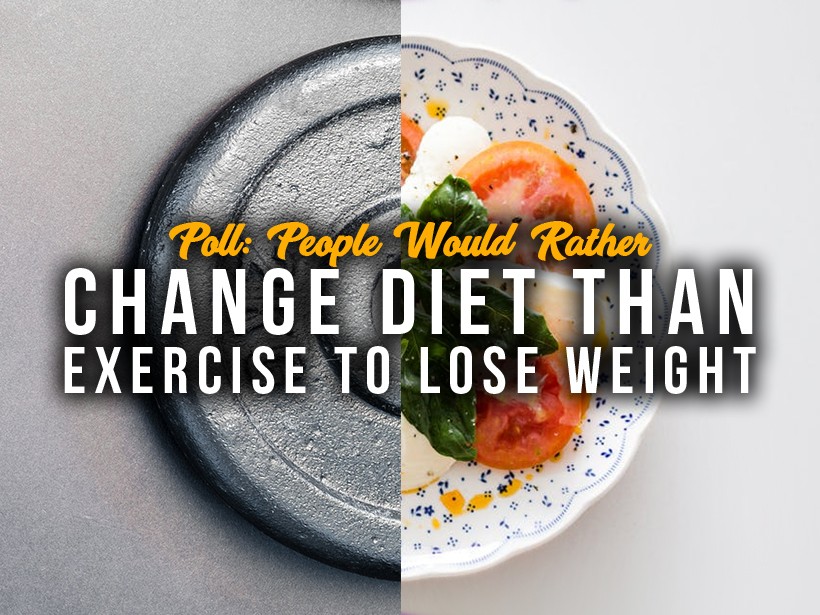A study from January 21, 2018 reports that more Americans would rather change their diet (46 percent) than exercise more (44 percent). Among these findings, more women (51 percent) would rather lose weight through dietary efforts. Likewise, more people from the northeast and mid-west would change diet before lacing up their running shoes. 1
Why Americans Don’t Exercise
There could be a number of reasons for this. Many Americans feel strapped for time, and others feel that a new workout routine would be inconvenient or physically difficult. A 1997 Wall Street Journal survey reported that 40 percent of Americans quote lack of time as a bigger problem than lack of money.2 A more recent poll in 2008 finds that 54 percent of Americans “do not have enough time to do what they want to do.”3 This could mean that it’s hard for the average American to find time to go to the gym, or even take a daily walk.
In a 2017 study, more than three-quarters of Americans reported that being in shape and looking good were “very important” to them, yet only 31 percent make exercise a regular habit. Forty-five percent admitted to never exercising at all. 4
Diet Impacts Weight Loss More than Exercise
No matter the reason for not exercising, not enough Americans are sweating each week, but there’s no cause for despair. Studies suggest that diet can have a more immediate and long-lasting effect on weight loss than exercise. While every American should talk to their doctor about starting an exercise routine, diet and caloric intake is more important when it comes to shedding pounds.
A 2011 meta-analysis studied the relationship between physical activity and body mass in children. They found that exercise alone may not be the key determinant in unhealthy weight gain in children. The main culprit may be high-calorie diets.5
To anyone who’s had a good workout, it should come as no surprise that exercise increases appetite. It’s the body’s way of replacing the calories it just lost, hence the increased drive to eat.
The Ketogenic Diet and Weight Loss
To those Americans who don’t want to hit the gym, there is encouraging news. Plenty of studies show that the ketogenic diet can help with rapid weight loss – and it can also help keep the weight off in the long-term.
The ketogenic diet was found to lower hunger, caloric intake, and greatly increase weight loss in a four-week period.6 Furthermore, people who adhere to a ketogenic diet achieve greater weight loss in the long-term than those who stick to a low-fat diet.7 A study of overweight adolescents shows that the ketogenic diet helps with short-term weight loss and an improvement in healthy cholesterol levels. This leads nutrition scientists to conclude that a ketogenic diet is a great tool in aiding weight loss.
So if you don’t feel like swimming laps or punching a bag, there’s an alternative. Put down the fried food. Pick up an avocado. It matters what we put into our bodies, and studies confirm this now more than ever before.
NUTRITIONAL DISCLAIMER
The content on this website should not be taken as medical advice and you should ALWAYS consult with your doctor before starting any diet or exercise program. We provide nutritional data for our recipes as a courtesy to our readers. We use Total Keto Diet app software to calculate the nutrition and we remove fiber and sugar alcohols, like erythritol, from the total carbohydrate count to get to the net carb count, as they do not affect your blood glucose levels. You should independently calculate nutritional information on your own and not rely on our data. The website or content herein is not intended to cure, prevent, diagnose or treat any disease. This website shall not be liable for adverse reactions or any other outcome resulting from the use of recipes or recommendations on the Website or actions you take as a result. Any action you take is strictly at your own risk.
- Love Good Fats Secures Funding and Launches in the U.S. - April 5, 2019
- Food and Beverage Manufacturers Cut Sugar Quickly - August 15, 2018
- Are Low-Carb Desserts the Next Big Thing? - July 12, 2018































